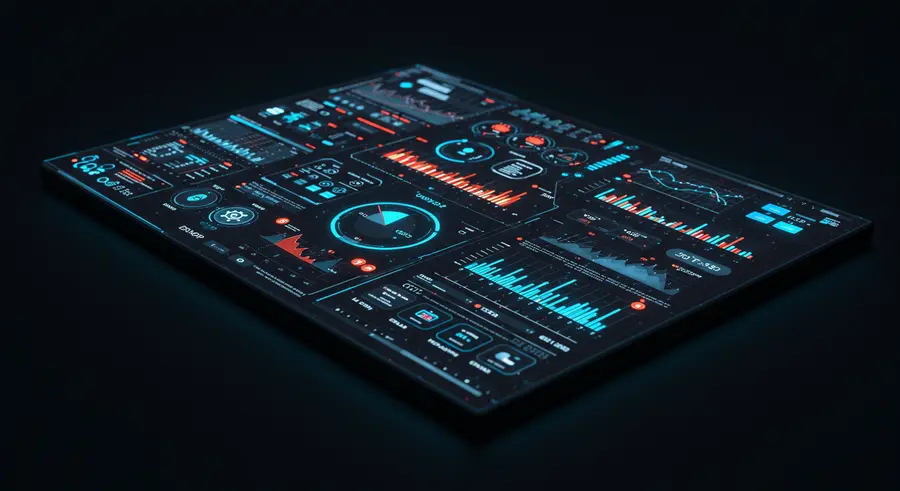Appearance

Welcome, tech innovators! 👋 Today, we're diving deep into a transformative synergy that's reshaping the landscape of software development and operations: the AI-Powered Revolution in DevOps. If you're involved in delivering high-quality software faster and more reliably, understanding this convergence is crucial. AI is no longer just a futuristic concept; it's a powerful enabler for optimizing every stage of the DevOps pipeline.
What is DevOps, and Where Does AI Fit In?
DevOps is a set of practices that combines software development (Dev) and IT operations (Ops) to shorten the systems development life cycle and provide continuous delivery with high software quality. It's all about breaking down silos, fostering collaboration, and automating processes.
Now, imagine infusing this methodology with the intelligence of Artificial Intelligence. AI brings capabilities like pattern recognition, predictive analytics, and automated decision-making to the table, taking DevOps to unprecedented levels of efficiency and reliability.
💡 Key Areas Where AI is Revolutionizing DevOps
Let's explore the critical domains where AI is making a significant impact:
1. Intelligent Automation and Orchestration
AI can learn from historical data to predict potential bottlenecks and proactively optimize workflows. From automated code deployments to intelligent resource provisioning, AI ensures that your pipelines run smoothly and efficiently.
- Predictive Scaling: AI algorithms can analyze traffic patterns and resource utilization to predict future demands, allowing for proactive scaling of infrastructure.
- Automated Incident Response: AI-powered systems can detect anomalies, diagnose issues, and even trigger automated remediation steps, significantly reducing downtime.
2. Enhanced Monitoring and Observability
Traditional monitoring provides data, but AI takes it a step further by providing actionable insights. AI-driven observability platforms can sift through vast amounts of logs, metrics, and traces to pinpoint anomalies and predict failures before they impact users.
For a deeper dive into understanding system health, check out our article on Understanding Observability in Modern Systems.
- Anomaly Detection: AI models can identify unusual patterns in system behavior that might indicate an impending issue, far beyond what static thresholds can achieve.
- Root Cause Analysis: By correlating events across different layers of the stack, AI can quickly identify the root cause of an issue, accelerating resolution.
3. Smart Testing and Quality Assurance
AI is transforming how we approach software testing, making it more comprehensive and efficient.
- Test Case Generation: AI can analyze code and requirements to automatically generate relevant test cases, increasing test coverage.
- Predictive Bug Detection: Machine learning models can learn from past defects and code changes to predict areas most likely to contain bugs, allowing developers to focus their testing efforts.
- Automated UI Testing: AI-powered tools can navigate user interfaces, identify elements, and create robust UI tests that are less prone to breaking with minor UI changes.
4. Security and Compliance Automation (DevSecOps)
Integrating security into every stage of the DevOps pipeline (DevSecOps) is paramount. AI plays a crucial role in strengthening this integration.
- Vulnerability Scanning: AI can enhance static and dynamic application security testing (SAST/DAST) by identifying complex vulnerabilities and reducing false positives.
- Threat Prediction: AI models can analyze threat intelligence and historical attack data to predict potential security breaches and recommend preventive measures.
- Automated Compliance Checks: AI can automate the verification of compliance with regulatory standards, ensuring that deployments meet all necessary requirements.
5. Intelligent Release Management
AI can optimize release cycles by analyzing deployment risks and recommending the best time for releases.
- Risk Assessment: By evaluating code changes, test results, and production data, AI can provide a comprehensive risk assessment for each release candidate.
- Rollback Automation: In case of an issue, AI can initiate automated rollbacks to a stable version, minimizing the impact on users.
Challenges and Future Outlook
While the benefits are immense, integrating AI into DevOps comes with its own set of challenges, including data privacy, model interpretability, and the need for skilled professionals who understand both AI and DevOps principles.
However, the future of AI-powered DevOps is incredibly promising. We can expect more sophisticated AI models, tighter integration across tools, and an even greater emphasis on autonomous operations, leading to truly self-healing and self-optimizing systems.
Conclusion
The AI-powered revolution in DevOps is not just an incremental improvement; it's a paradigm shift. By embracing AI, organizations can achieve unprecedented levels of efficiency, reliability, and security in their software delivery pipelines. It's an exciting time to be in the world of technology, and the intelligent evolution of DevOps is certainly a front-runner in this transformation.
Stay curious, keep learning, and embrace the future of AI in DevOps! 🚀